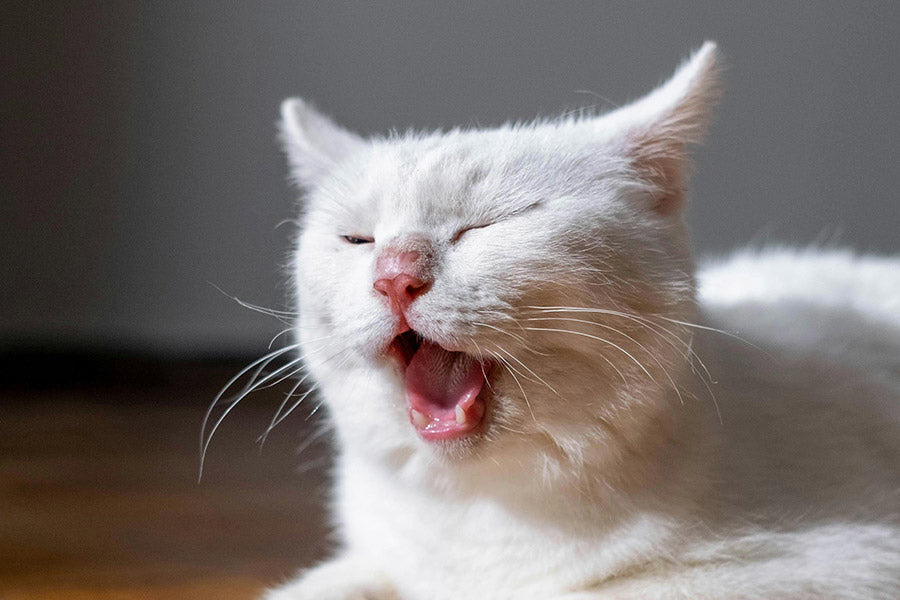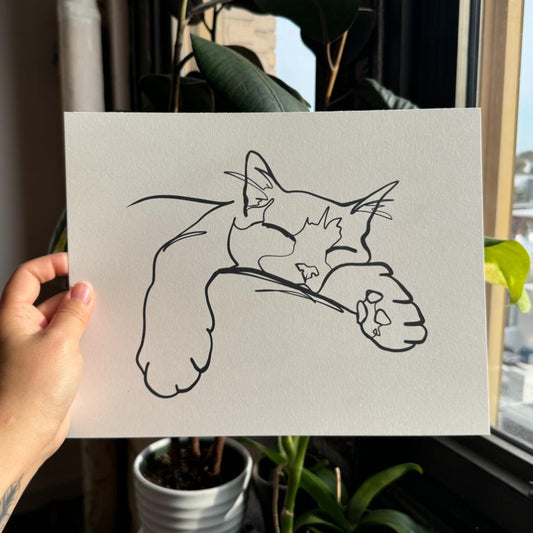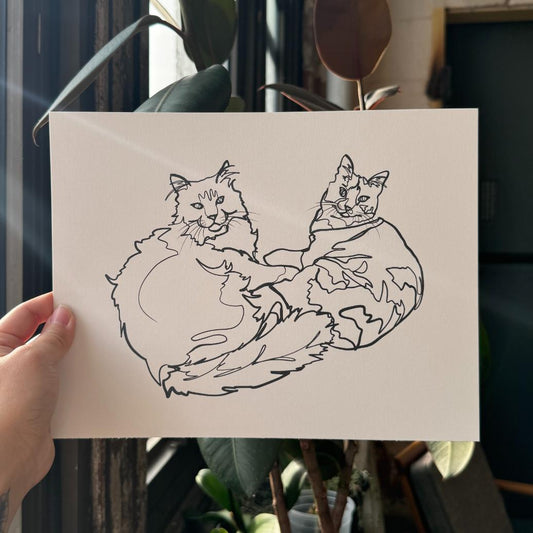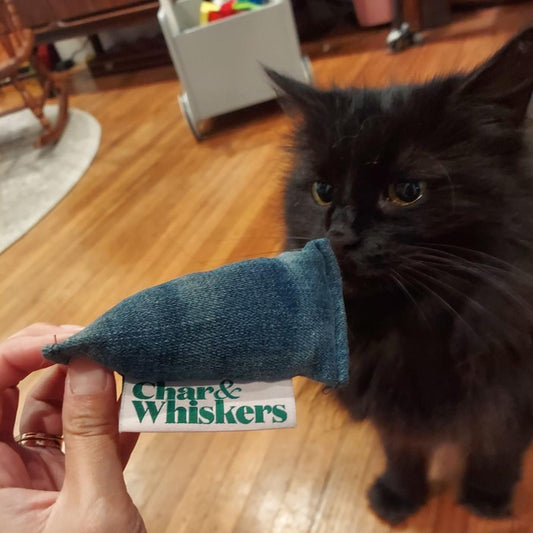
Why Does My Cat Keep Sneezing? Common Causes and When to Worry
Celeste ZosimoAll animals (with lungs, that is) sneeze. Humans, elephants, horses, bears, birds, dogs, and, of course, cats. For our beloved kitties, a sneeze or two is normal, and even cute. But what if you notice them sneezing more than usual? Here's what you need to know and what you can do to stop it.
Common Causes of Cat Sneezing

Cats do a lot of strange things that we consider normal: having the zoomies at 3 am or stopping in the middle of grooming with their tongue sticking out. So, it's only natural to think of an occasional cat sneeze as something normal. We humans do it, too. But when you notice your kitty achoo-ing more frequently, it may be time to investigate.
Below are the most common causes of cat sneezing:
Upper Respiratory Infections (URIs)
Often referred to as common cold or cat flu, upper respiratory infections (URIs) in cats can be the reason your furbaby is sneezing. Your cat is highly likely to get these infections from going outside and socializing with other cats. It is also possible that you or other hoomans are the carriers of the viral particles that stick to your shoes or clothes.
Allergies
Cats can become allergic to environmental irritants such as pollen, mold, dust mites, perfume, or cleaning sprays, among others. If the constant sneezing is accompanied by skin itching or irritation, you may need to speak to your vet about diagnostics tests to determine the real cause.
Foreign Objects
Irritants or foreign objects such as dusty cat litter, candles, and cigarette smoke, and can irritate your kitty's nasal passages and cause them to sneeze. To find out if this is the culprit, observe your pet and look for patterns. Do they sneeze after using the litter box or when you clean the house? Do the fits start when you light candles or when someone smokes?
When to Worry

If you find out that your cat sneezes because of the causes above, or if you still can't identify what's causing it, you may want to visit your vet. Here are the reasons your sneezing cat needs medical attention:
Persistent Sneezing
If your kitty continues to sneeze frequently over an extended period, you must take notice. It can be because of an underlying issue that needs immediate attention. Don't hesitate to take them for a vet visit to identify the real cause and get proper treatment.
Accompanying Symptoms

Pay attention to the accompanying symptoms that come with the persistent sneezing. These are some you should look out for:
Nasal Discharge: If you notice your cat has a runny nose or discolored discharge coming out of it, it can be a sign of an infection or inflammation.
Coughing: If sneezing comes with bouts of coughing, your cat may be suffering from a respiratory problem.
Lethargy: If you see your kitty seemingly tired or lacking energy, check with your vet immediately.
Below are the red flags that warrant immediate attention:
Difficulty breathing: When you see your cat with labored breathing, wheezing, or open-mouthed breathing, take them to your vet right away.
Bleeding: If you see your cat sneeze with blood coming out of its nose, seek professional help immediately.
Sudden weight loss: Unexplained weight loss combined with frequent sneezing can indicate an underlying medical condition that requires urgent vet care.
Underlying Health Conditions
Persistent sneezing in cats can be because of underlying conditions such as:
Dental issues: Dental problems affecting your cat's teeth, gums, or the roof of their mouth can trigger sneezing.
Nasal polyps: Benign growths, known as nasal polyps, can be found on your cat's nasal passage and cause persistent sneezing and breathing difficulties.
Immune disorders: Conditions such as feline herpes or feline immunodeficiency virus (FIV) can affect your cat's immune system, which can lead to chronic sneezing.
Note that these symptoms and conditions need professional evaluation. Check with your vet if your cat is showing one or two of these.
Treatment and Prevention

Early intervention and proper care are always the best for your beloved furbabies. If your cat experiences chronic sneezing, here are a few possible treatments and ways to prevent this from happening again.
Veterinary Care and Consultation: If you notice something unusual with your cat, it's always best to err on the side of caution. Seek professional veterinary advice immediately. Only they can assess your cat's overall health, perform the necessary tests, and recommend the best treatment.
Diagnostic Procedures: A veterinarian can recommend the following diagnostic tests to check your cat's persistent sneezing:
- Physical examination: Your vet will check your cat's nose, mouth, and overall health condition.
- Blood tests: Blood work can identify most infections, immune disorders, or any other underlying conditions.
- Imaging or X-rays: These are what can help you reveal nasal polyps, dental abnormalities, or respiratory problems.
- Culture and sensitivity tests: If the vet suspects an infection, these are the tests that can help them identify the specific virus or bacteria in your cat.
Treatment Options
The following are some of the treatment options available to you if you notice your cat sneezing non-stop:
Antibiotics and antivirals: For bacterial or viral infections, expect your vet to prescribe the use of antibiotics and antivirals. These help combat the infection and reduce inflammation. These can also help treat feline herpes which can manage symptoms and prevent flare-ups.
Supportive care: Gently clean your cat's nostrils with saline solution to remove congestion and debris. You can also opt for steam therapy and humidifiers to ease their nasal passages.
Proper nutrition and hydration: Make sure that your cat gets enough rest, comfort, and proper nutrition, and is always hydrated. This strengthens their immune system and gives protection from infections and other diseases.
Preventive Measures

To prevent this from happening again and maintain your cat’s health, make sure they are updated with their vaccines. Remember to bring them to the vet for regular checkups. Also, keep their environment clean to ensure they live happy, healthy lives with you.




